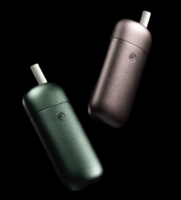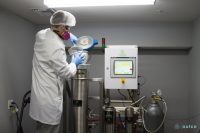TORONTO and PORT WASHINGTON, N.Y., Jan. 05, 2021 (GLOBE NEWSWIRE) — PRESS RELEASE — North America’s first research and development facility dedicated to advancing cannabis cultivation techniques and systems has been completed by The Flowr Corporation and Hawthorne Canada Limited. Hawthorne is a subsidiary of the Hawthorne Gardening Company division of The Scotts Miracle-Gro Company. Scotts Miracle-Gro is a marketer of branded consumer lawn and garden products and indoor growing solutions. Flowr cultivates and sells premium cannabis to medical and adult-use markets in Canada, Europe and Australia.
Located on Flowr’s cultivation campus in Kelowna, British Columbia, Canada, the R&D Center includes laboratories, indoor grow suites and training areas in a single building. Flowr will test cultivation systems and techniques using Hawthorne’s lighting, fertilization and irrigation systems, growing mediums, and research protocols. In addition, Flowr intends to focus its own research on cannabis genetics and integrated growing systems in line with its goal of delivering premium quality cannabis products through highly efficient cultivation.
“We built Hawthorne to help cultivators of all sizes grow quality plants with high levels of efficiency and consistency. Completing the industry’s only dedicated R&D facility gives us a distinct advantage. We will leverage Flowr’s cultivation expertise and our technical capabilities into real world testing and results that will make a difference to growers,” said Chris Hagedorn, SVP & General Manager of Hawthorne Gardening. “We are proud of this collaboration with Flowr, a leading international cannabis company, with extensive growing experience indoors, in greenhouses and at-scale outdoors. Flowr is also one of a few companies that have had experience growing diverse genetics in different countries. We believe this experience will benefit our companies and the growers we serve.”
“The completion of the R&D Center brings our work with Hawthorne fully to life and will help keep both companies on the leading edge of cannabis cultivation for years to come,” commented Lance Emanuel, President and Interim Chief Executive Officer of Flowr. “Operationalizing the R&D Center is a major accomplishment for our organization and strengthens our competitive advantage in cultivation. We believe the long-term success of Flowr will be rooted in our ability to maximize the cannabinoid and terpene expression of genetics without sacrificing yield. The work we will do at the R&D Center will help us build upon the success we’ve had producing high quality, premium cannabis like our award-winning, flagship-strain BC Pink Kush beloved by budtenders and consumers throughout Canada. Leveraging our work at the R&D Center will be imperative to our eventual entry into the United States once federally permissible by law.”
The R&D Center is the centerpiece of a strategic R&D partnership formed by Flowr and Hawthorne in March 2018. It brings two of the world’s leading experts together to be at the forefront of cannabis cultivation. The operations will be led by Dr. Deron Caplan, the first person in North America to earn a PhD focused on cannabis cultivation and production. Caplan was awarded his doctorate by the University of Guelph in August 2018 and is Flowr’s Director of Research and Development. The R&D Center will be staffed by Flowr’s scientists, five of whom have PhDs in various plant biology, plant genetics and plant biochemistry disciplines. Hawthorne R&D will lead the research design and methodology.
All requisite licensing from Health Canada has been obtained by Flowr and the expectation is that the R&D Center will be operating at full capacity in Spring 2021. Research has already begun conducting growing trials at scale using Hawthorne products.







